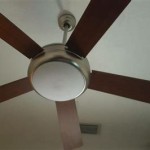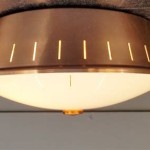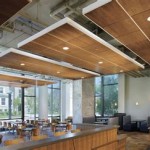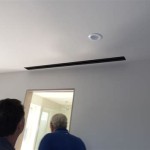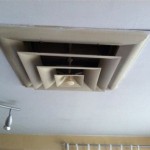Everything You Need To Know About Recessed Ceiling Tiles In Singapore
Recessed ceiling tiles, also known as drop ceiling tiles or suspended ceiling tiles, are a common architectural element in Singapore's commercial, residential, and industrial spaces. These tiles offer a combination of aesthetic appeal, functionality, and accessibility, making them a practical choice for a wide range of applications. Understanding the various aspects of recessed ceiling tiles – from their composition and types to installation, maintenance, and cost considerations – is crucial for making informed decisions when selecting and implementing them in any project.
This article provides a comprehensive overview of recessed ceiling tiles in Singapore, covering their characteristics, applications, benefits, selection criteria, installation process, maintenance guidelines, and relevant cost factors. The information presented herein aims to equip readers with the necessary knowledge to effectively incorporate recessed ceiling tiles into their building designs and renovations.
Types of Recessed Ceiling Tiles Available in Singapore
The market for recessed ceiling tiles in Singapore offers a diverse range of materials, sizes, and designs to meet various aesthetic and performance requirements. The selection of the appropriate type of tile depends on factors such as the intended use of the space, budget constraints, and desired acoustic and fire-resistant properties.
Mineral Fiber Tiles: These are among the most popular types of recessed ceiling tiles. They are manufactured from a combination of mineral wool, clay, and other materials. Mineral fiber tiles offer excellent sound absorption properties, making them suitable for offices, classrooms, and other environments where noise control is essential. They also possess a reasonable level of fire resistance. Mineral fiber tiles are generally cost-effective and available in a wide variety of textures and patterns.
Gypsum Tiles: Gypsum tiles are primarily composed of gypsum, a naturally occurring mineral. They are known for their smooth surface finish, which allows for easy painting and customization. Gypsum tiles offer moderate sound absorption and fire resistance. They are often used in spaces where a clean and uniform appearance is desired, such as retail stores and reception areas.
Metal Tiles: Metal tiles are typically made from aluminum or steel. They are highly durable and offer excellent fire resistance. Metal tiles are often used in environments where hygiene is paramount, such as hospitals and food processing facilities. They are also moisture-resistant, making them suitable for use in bathrooms and kitchens. Metal tiles can be perforated or embossed to enhance their acoustic performance.
Acoustic Tiles: These tiles are specifically designed to provide superior sound absorption. They are often made from fiberglass, mineral fiber, or recycled materials. Acoustic tiles are available in a variety of surface textures and patterns to suit different design preferences. They are commonly used in recording studios, theaters, and other spaces where sound quality is critical.
Wood Tiles: Wood tiles offer a natural and aesthetically pleasing alternative to traditional ceiling tiles. They are typically made from wood veneers or solid wood. Wood tiles can be used to create a warm and inviting atmosphere. They offer moderate sound absorption and fire resistance, depending on the type of wood and any applied treatments. Wood tiles are often used in restaurants, hotels, and residential spaces.
Fire-Resistant Tiles: These tiles are specifically designed to provide enhanced fire protection. They are typically made from mineral fiber, gypsum, or metal, and they are treated with fire-retardant chemicals. Fire-resistant tiles are essential for complying with building codes and ensuring the safety of occupants.
The Benefits of Installing Recessed Ceiling Tiles
Recessed ceiling tiles offer a multitude of benefits, making them a popular choice for both new construction and renovation projects in Singapore. These benefits extend beyond aesthetics and directly impact functionality, cost-effectiveness, and ease of maintenance.
Acoustic Performance: One of the most significant advantages of recessed ceiling tiles is their ability to improve the acoustic environment of a space. Many types of tiles, particularly mineral fiber and acoustic tiles, effectively absorb sound, reducing reverberation and noise levels. This is crucial for creating comfortable and productive environments in offices, classrooms, and other areas where noise control is important.
Concealing Utilities: Recessed ceiling tiles create a plenum space above the suspended ceiling, which can be used to conceal unsightly utilities such as wiring, ductwork, and piping. This not only enhances the aesthetic appearance of the space but also allows for easy access to these utilities for maintenance and repairs. This is particularly advantageous in commercial buildings where frequent maintenance is required.
Ease of Installation and Maintenance: Recessed ceiling tiles are relatively easy to install and maintain. The installation process typically involves suspending a grid system from the ceiling and then placing the tiles into the grid. Tiles can be easily removed and replaced for maintenance or repairs. This ease of installation and maintenance can save time and money in the long run.
Improved Lighting: Recessed ceiling tiles can improve the lighting quality of a space by reflecting light. Light-colored tiles can help to distribute light more evenly, reducing glare and creating a brighter and more comfortable environment. Recessed lighting fixtures can also be easily integrated into the suspended ceiling system, providing a flexible and energy-efficient lighting solution.
Fire Resistance: Many types of recessed ceiling tiles offer a degree of fire resistance. This can help to slow the spread of fire and provide occupants with more time to evacuate the building. Fire-resistant tiles are essential for complying with building codes and ensuring the safety of occupants.
Cost-Effectiveness: Recessed ceiling tiles are generally a cost-effective ceiling solution. They are relatively inexpensive to purchase and install, and they can save money on energy bills by improving insulation and reducing the need for artificial lighting. The ease of maintenance also contributes to their overall cost-effectiveness.
Aesthetic Versatility: Recessed ceiling tiles are available in a wide variety of materials, sizes, and designs. This allows designers to create a variety of different looks, from clean and modern to traditional and ornate. The flexibility of recessed ceiling tiles makes them suitable for a wide range of applications.
Factors to Consider When Choosing Recessed Ceiling Tiles in Singapore
Selecting the appropriate recessed ceiling tiles requires careful consideration of several factors, including the intended use of the space, budget constraints, performance requirements, and aesthetic preferences. A thorough assessment of these factors will ensure that the chosen tiles meet the specific needs of the project.
Acoustic Requirements: If noise control is a priority, it is important to select tiles with a high Noise Reduction Coefficient (NRC). The NRC measures the amount of sound that a material absorbs. Tiles with a higher NRC will absorb more sound, reducing reverberation and noise levels. Consider the specific acoustic requirements of the space and choose tiles accordingly.
Fire Resistance Rating: The fire resistance rating of the tiles should comply with local building codes. Check the fire resistance rating specified by the Building and Construction Authority (BCA) of Singapore and select tiles that meet or exceed those requirements. This is particularly important in commercial and public buildings.
Humidity Resistance: Singapore experiences high humidity levels throughout the year. It is important to select tiles that are resistant to moisture and humidity. This will prevent the tiles from sagging, warping, or developing mold or mildew. Consider using metal or mineral fiber tiles with a high humidity resistance rating.
Lighting Requirements: Consider the lighting requirements of the space when selecting recessed ceiling tiles. Light-colored tiles will reflect more light, reducing the need for artificial lighting. Integrate recessed lighting fixtures into the suspended ceiling system to provide a flexible and energy-efficient lighting solution. Choose tiles that are compatible with the chosen lighting fixtures.
Maintenance Requirements: Consider the ease of maintenance when selecting recessed ceiling tiles. Tiles that are easy to clean and replace will save time and money in the long run. Select tiles that are durable and resistant to staining and damage. Also, consider the availability of replacement tiles.
Aesthetic Considerations: Choose tiles that complement the overall design of the space. Consider the color, texture, and pattern of the tiles. Select tiles that create the desired atmosphere, whether it is clean and modern or warm and inviting. Consider the size and shape of the tiles and how they will fit within the grid system.
Budget Constraints: Set a budget for the recessed ceiling tiles and select tiles that fit within that budget. Consider the cost of the tiles, the installation costs, and the long-term maintenance costs. Compare prices from different suppliers to find the best value for the money. Do not compromise on quality to save money, as this may lead to higher costs in the long run due to repairs and replacements.
Sustainability: Consider the environmental impact of the tiles. Select tiles that are made from recycled materials or are sustainably sourced. Look for tiles that are certified by environmental organizations such as the Singapore Green Building Council (SGBC). This will help to reduce the environmental footprint of the project.
By carefully considering these factors, it is possible to select recessed ceiling tiles that meet the specific needs of the project and provide a comfortable, functional, and aesthetically pleasing environment.

Suspended Ceilings Singapore Drywall Gypsum Board Options

Ultimate Guide How To Install Ceiling Tiles Successfully

Pros And Cons Of Having A Drop Ceiling With Commercial Tiles In The Office Decorative Inc

Pros And Cons Of Having A Drop Ceiling With Commercial Tiles In The Office Decorative Inc

Grid Ceiling Tile Installation Repairs

10 Latest False Ceiling Design Ideas For Your Stunning Home By Livspace

2x2 Acoustical Ceiling Tiles How To Make The Most Out Of Any Space Decorative Inc

False Ceiling Vm Singapore Partition Wall Contractor

Grid Ceiling Tile Installation Repairs

Why Invest In Styrofoam Ceiling Tiles Decorative Inc
Related Posts

